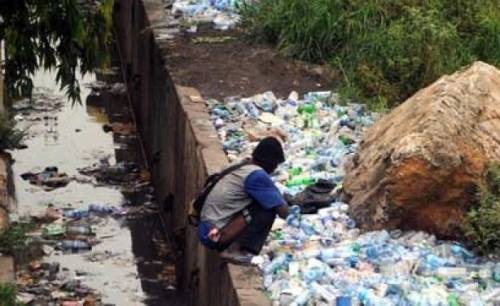Breaking News
Our only priority is to end open defecation in Nigeria – UNICEF
Bevan emphasized that correct defecation practices could help avoid non-transgenic diseases (NTDs), which are caused by bacterial infections, while also noting the dangers of open defecation.

In an effort to eradicate neglected tropical diseases (NTDs) and put an end to open defecation in Nigeria, the United Nations Children’s Fund (UNICEF) has teamed up with media outlets, public servants, and other pertinent parties.
Speaking at a two-day Media Dialogue on Ending Open Defecation in Nigeria and Eliminating Neglected Tropical Diseases (NTDs) in Lagos State, Jane Bevan, Chief of Water, Sanitation and Hygiene [WASH] at UNICEF, stressed the importance of collaboration in spreading the campaign throughout the entire nation.
Bevan emphasized that correct defecation practices could help avoid non-transgenic diseases (NTDs), which are caused by bacterial infections, while also noting the dangers of open defecation.
She said, “We can’t do this alone; we want Nigeria to be open defecation-free. We need everyone on board the government, private sector, banks, and people from all walks of life.

Open defecation
“The media plays a huge role in publicizing this accurately. It was mentioned yesterday that the campaign in India was successful because people heard about open defecation everywhere in the media, schools, and hospitals.
“To achieve the same impact in Nigeria, we need to put it in people’s minds that defecation should only take place in toilets.”
On her part, the Coordinator of Clean Nigeria, Chizome Opara, lamented that 48 million Nigerians still practice open defecation, saying immediate action is needed from all stakeholders to arrest the ugly trend,
According to her, this action, if effectively managed could reduce the transmission of NTDs, and engender improved sanitation and hygiene practices.
“As we explore strategies for collaboration, share success stories, and discuss challenges in achieving an open defecation-free Nigeria, let’s work together to create a more secure environment for Nigerians,” she urged.
The Assistant Director, WASH Track, Ministry of Water Resources, Joseph Adeyemo said: linked open defecation to the spread of Neglected Tropical Diseases (NTDs).
“Open Defecation, a practice that persists in many parts of our country, with about 48 million persons engaging in the act in Nigeria, is a sanitation and hygiene-related issue and a significant contributor to the spread of NTDs. Diseases like onchocerciasis, Schistosomiasis, Trachoma, Lymphatic Filariasis, Soil Transmitted Helminthiasis(STH) etc. are transmitted through contaminated soil and faeces, perpetuating a cycle of poverty, malnutrition, and ill health.

Open Defecation
“By addressing Open Defecation, we can significantly reduce the transmission of NTDs, improved sanitation and hygiene practices can break the cycle of infection, protecting vulnerable populations, especially children and women.
“Through this dialogue, we aim to raise awareness about the importance of ending Open Defecation and its impact on NTD elimination. We will explore strategies for collaboration, share success stories, and discuss challenges in achieving a Nigeria free from Open Defecation and NTDs”.
Other high points of the dialogue include a panel discussion, featuring WASH experts from UNICEF, Water Aid, and United States Agency for International Development – Lagos Urban WASH (USAID-LUWASH), along with a representative from the private sector.
The panel gave insights on how various stakeholders could work together on the campaign to end open defecation in Nigeria










